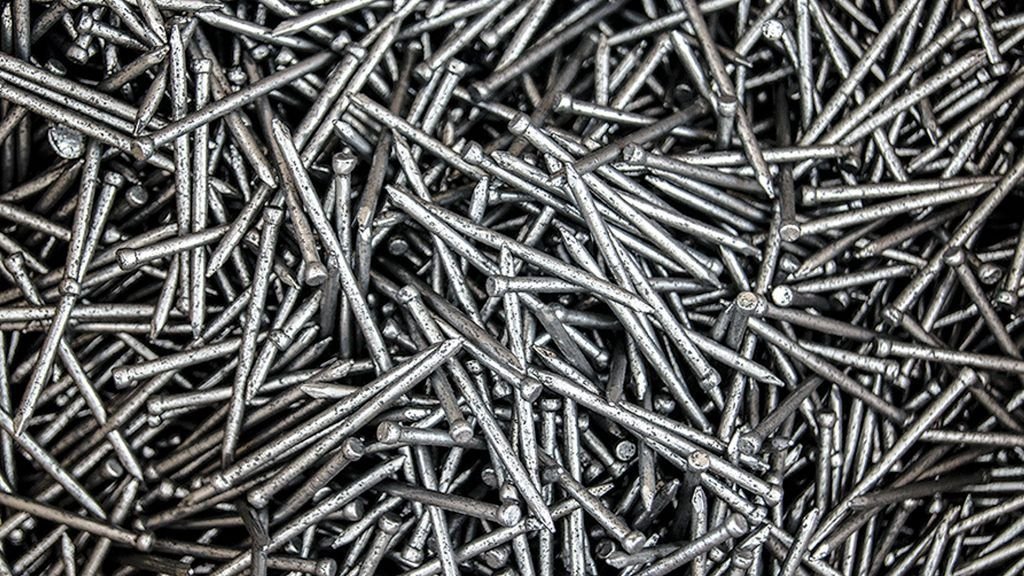The Ministry of Economy reported on Thursday that it eliminated the countervailing duty on imports of nails from China.
From January to September 2020, Mexico imported nails with a customs value of 15 million dollars, of which 9 million were supplied from China.
The Ministry of Economy declared the administrative procedure for examining the validity of the countervailing duty imposed on imports of steel nails for concrete originating in China, regardless of the country of origin, which enter through tariff section 7317.00.99 of the TIGIE, or by any other.
Following an investigation, the Ministry of Economy resolved to eliminate the final countervailing duty of $ 0.54 per kilogram imposed on imports of steel nails for concrete originating in China.
Initially, on November 29, 2004, the final resolution of the anti-dumping investigation on imports of steel nails for concrete originating in China was published in the Official Gazette of the Federation (DOF), regardless of the country of origin.
By means of said Resolution, the Ministry of Economy determined a definitive compensatory quota of 0.50 dollars per kilogram, both for temporary and definitive imports.
Nails imports
The most recent investigation began when on October 4 and 23, 2019, the companies Clavos Nacionales México and Deacero expressed their interest in the Ministry of Economy starting the examination of the validity of the definitive compensatory quota imposed on imports of steel nails for concrete. originating in China.
The product under review is steel concrete nails, which are circular section shanks made of tempered carbon steel wire in lengths ranging from ¾ to 4 inches, whatever their diameters and head thickness, regardless of shape or finish (black, galvanized, smooth, threaded, rolled, or any other shape or finish).
Foreign trade
According to the SIAVI, imports of the product under examination have a 7 percent tariff.
Imports originating in countries with which Mexico has signed free trade agreements are exempt from tariffs, except for imports originating in Guatemala, Honduras and El Salvador, which will be subject to a 40% preference between the lowest rate of the most favored nation tariff in effect at the time of importation or the tariff corresponding to the base rate of the corresponding Treaty.
Also, in accordance with the Comprehensive and Progressive Trans-Pacific Partnership Treaty (TIPAT), merchandise originating in Australia, Canada, Japan, New Zealand and Singapore are subject to a 4% duty, while those originating in Vietnam are subject to a 4% tariff. 6% tariff, while, according to the Trade Integration Agreement between the United Mexican States and the Republic of Peru, imports originating in the latter are subject to tariff reduction and the payment of a 1.5% tariff on 1 January to December 31, 2020.
Productive process
The main input for the manufacture of the steel nail for concrete is the medium carbon steel wire. Other raw materials are electrical energy and zinc for galvanizing. Specialized machinery is used with the capacity to produce nails of various types, gauges and lengths.
The wire is cleaned of rust by immersion in sulfuric acid and water. It is phosphated in preparation for wire drawing, a process by which it is lowered or stretched to give it the required diameter. It is then subjected to annealing to give it the necessary hardness. Thus, a wire is obtained with the chemical and physical properties that the nail will have.
The wire is then stripped to remove the layer that forms on annealing. The diameter is phosphated and calibrated, and then taken to nail-making machines, which cut the nail to the required length and make the head and point at the same time.
Likewise, the nail obtained has a smooth body, which can be polished to give it a shiny finish, or can be offered as black stamped nails (rolled, grooved, hexagonal or twisted, among other finishes). Some manufacturers shape the body in wire drawing (smooth, rolled or fluted), prior to stamping.
Subsequently, the nails are tempered by means of a heat treatment in an oven. They are cooled in oil, washed and heated a second time. They are washed again and cleaned of burrs and other impurities.
In all of 2019, imports of nails from Mexico originating from all over the world were for 21.4 million dollars, while those from China totaled 13.4 million.
Other sources of nail imports from Mexico have been Taiwan, the United States and South Korea.
![]()

